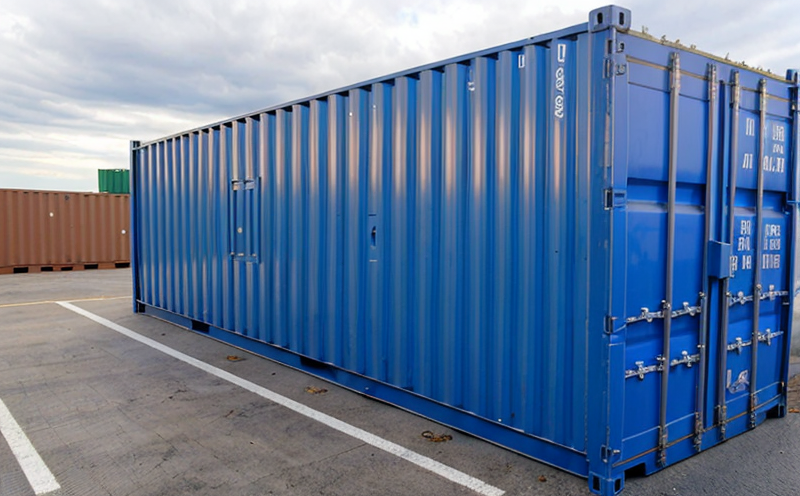DIN EN 13432 Compostability Testing of Plastic Storage Containers
The DIN EN 13432 standard specifies compostability requirements and test methods for plastics intended to be recycled by home composting. This service ensures that plastic storage containers meet the stringent conditions necessary for successful biological decomposition under controlled industrial composting processes.
Compostable packaging is designed to break down into natural elements such as water, CO2, and biomass without leaving toxic residues behind. Compliance with DIN EN 13432 demonstrates a commitment to sustainable waste management practices and helps companies meet eco-labeling and certification requirements.
The testing process involves several stages: initial characterization of the plastic material, biodegradation tests in controlled composting conditions, and assessment of whether the tested items fully decompose within specified timeframes. This service is crucial for manufacturers developing innovative products that aim to reduce their environmental footprint by using more sustainable materials.
Manufacturers can leverage this testing service to gain a competitive edge by ensuring their products are both effective and compliant with stringent international standards. This not only enhances brand reputation but also opens up new markets where consumer demand for eco-friendly packaging is high.
| Test Stage | Description |
|---|---|
| Initial Characterization | Determining the chemical and physical properties of the plastic material. |
| Biodegradation Tests | Evaluating how quickly the plastic breaks down under controlled composting conditions. |
| Residue Analysis | Ensuring that no harmful substances remain after decomposition. |
The DIN EN 13432 standard is particularly important for companies in the packaging and plastics industry who are looking to meet regulatory requirements or gain third-party certification. It provides a clear pathway for manufacturers to develop products that contribute positively to waste reduction efforts.
For quality managers, compliance officers, R&D engineers, and procurement teams, this service offers valuable insights into how plastic storage containers perform under composting conditions. Understanding these parameters helps in making informed decisions about material selection and process optimization.
Why It Matters
Meeting the requirements of DIN EN 13432 is essential for manufacturers who want to demonstrate their commitment to sustainability. By ensuring that plastic storage containers are compostable, companies can play a crucial role in reducing waste and promoting circular economy principles.
Enhances brand reputation
Promotes sustainable practices
Makes products more attractive to eco-conscious consumers
Aids in meeting regulatory requirements
Gains third-party certification and labeling
Supports market access for eco-friendly packaging
The importance of compostability cannot be overstated, especially as global awareness about plastic waste continues to grow. Consumers are increasingly demanding products that are environmentally friendly, and companies that meet these expectations will find it easier to capture a share of the growing green market.
Applied Standards
DIN EN 13432 is part of the broader family of standards related to biodegradable plastics, which includes ISO 17085 for quality management systems in the production and testing of bioplastics. Compliance with these standards ensures that products are not only biodegradable but also meet the highest levels of environmental performance.
| Standard | Description |
|---|---|
| DIN EN 13432 | Specification for compostable plastics intended to be recycled by home composting. |
| ISO 17085 | Requirements for quality management systems in the production and testing of bioplastics. |
The use of these standards provides a robust framework for manufacturers to develop products that meet both regulatory requirements and market expectations. It also ensures that tests are conducted under consistent and internationally recognized conditions, enhancing the reliability and credibility of the results.
Customer Impact and Satisfaction
Increased trust in brands committed to sustainability
Enhanced reputation among eco-conscious consumers
Potential for increased market share
Achievement of regulatory compliance
Positive feedback from environmental organizations and stakeholders
Customer satisfaction through reduced waste and improved recycling practices
Meeting the requirements of DIN EN 13432 can significantly impact customer perceptions, leading to increased loyalty and repeat business. By offering products that are both effective and compliant with international standards, companies can build strong relationships with their customers.





